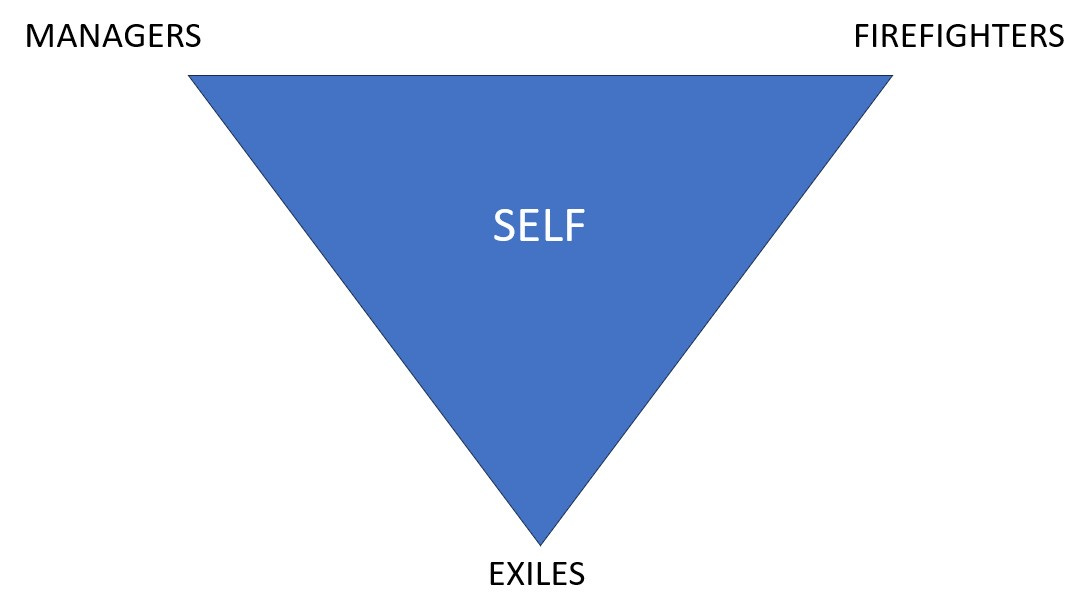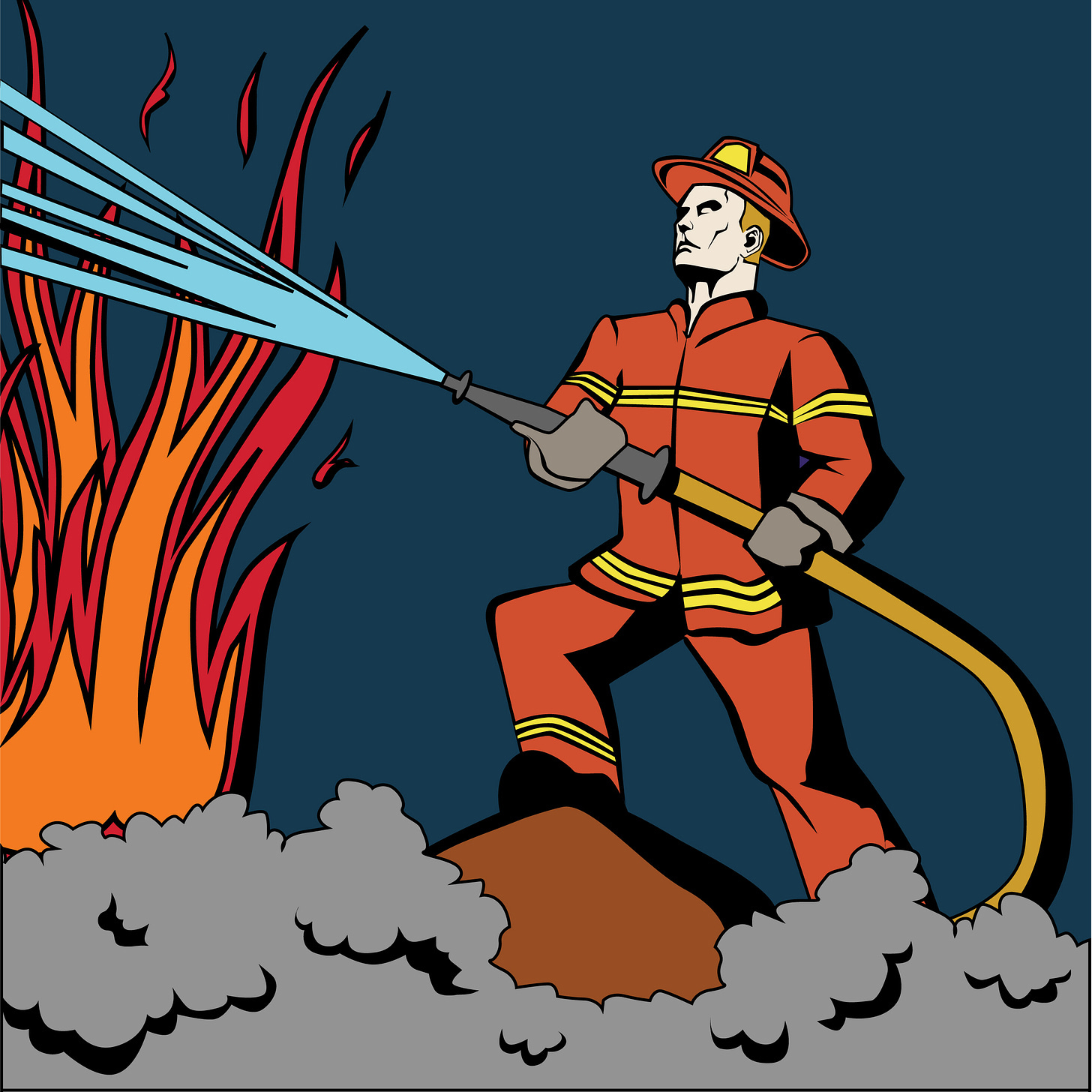Managers, Firefighters and Exiles
Richard Schwartz's Internal Family Systems offers a new approach to therapy.
HSP retreat update: There are still a few places left for the retreat that Jules De Vitto and I are co-hosting this month at the beautiful Quadrangle in Kent, UK (June 15-18). We’re very excited to be convening an in-person gathering, and have some very special guests for what’s shaping up to be a fantastic few days. For more details, please click here:
I warmly welcome you to join The HSP Revolution online membership community — where I host two live workshops per month, post daily inspiration, and provide opportunities to share and connect. Members also gain full access to four editions of this newsletter per month. See you there!
Last week, I attended a four-day training in Internal Family Systems (IFS), a therapy developed over the past 40 years by American psychologist Richard Schwartz.
IFS has become increasingly popular in recent years, and I was very curious.
I’ll confess that I was fascinated by what I learned from the trainer, Dr Zandra Bamford, and I thought I’d share a taste of Schwartz’s work in this week’s newsletter. (There are some links to the training and further reading below).
The basic principle underlying IFS is that we’re comprised of multiple “parts” — each one acting like a distinct individual, with its own motivations, fears and desires.
You could think of these parts like members of a family — only this family is inside you (hence the name Internal Family Systems).
Parts fall into one of three categories (which I explore in more detail below):
Managers — Proactive; running our daily life; Seek security through control.
Exiles — Young parts; holding deep wounds, memories of pain, shame and terror.
Firefighters — Goal is to keep exiles at bay, often through distraction or numbing.
Our various parts can make themselves known in all sorts of ways — via the thoughts we think; the emotions we feel; images; body sensations, or patterns of behaviour. (People pleasing by Manager parts is particularly prevalent among Highly Sensitive People, the 20-30 percent of the population who process thoughts, emotions and sensory input more deeply than average).
We get into problems when our parts are forced into extreme roles because of trauma or attachment disruption in early life. For example, our Manager parts may take perfectionism or caretaking behaviours to extremes. Firefighters, by contrast, may resort to addictions, or even self-harm or suicidality, to protect us from the painful emotions carried by our Exiles. Our Exiles, meanwhile, carry disowned feelings of shame, worthlessness or despair.
What I love about the model is that it represents a decisive break with a tendency in psychology to pathologise distress — and approach symptoms as something we need to get rid of. IFS, by contrast, recognises the underlying intelligence behind our symptoms, and is based on compassion for all parts of ourselves. Schwartz’s most recent book is called No Bad Parts: Healing Trauma and Restoring Wholeness with the Internal Family Systems Model. The principle that there are “no bad parts” is the key: Each part has a reason for acting how it does, and deserves to be welcomed, witnessed and held.
The goal of IFS therapy is to help us get to know our parts better. As we hold our parts in non-judgmental awareness, they can begin to “unburden” themselves. Our Managers, Firefighters and Exiles start to feel safe enough to relax, soften and let go of the extreme roles they’ve adopted. That way, we can gradually bring our parts back into balance — just like we might imagine restoring harmony in a family.
Once our parts find their proper place, we can access more of our “Self” — the term used in IFS to refer to a kind of higher self, or core essence. This is the part that is wise and loving, and holds all other parts in non-judgmental awareness. Like the sun behind the clouds, our Self is eternal and never-changing. The more work we do on our parts, the more we can allow the Self’s guidance, wisdom and care to illuminate our path — and infuse our lives with more creativity, meaning and joy.
I loved my initial taste of IFS, and I’m very much looking forward to the next phase of the training in July.
Aspects of Various Parts
Examples of Manager parts
• People pleaser
• Perfectionist
• Caretaker
• Controlling self and others
• Excessive self criticism
• Judge
• Worrier
• Achiever/Striver
• Passive/Pessimistic
• Procrastinator
• Numbing/ Shutting down/ Denial
Examples of Firefighter parts
• Binge eating
• Addictions (alcohol, drugs, sex, gaming and so on)
• Shopping, workaholism, scrolling phone
• Rage
• Affairs
• Self harming/suicidality
• Fantasy
• Panic
• Anxiety
• Hypervigilance
• Cravings
• Digestive problems
Examples of Exile parts
• Shamed
• Dependency
• Empty
• Fearful
• Shy
• Open
• Helpless
• Worthless
• Hurt
• Fragile
• Angry
• Sad
• Powerless
• Guilt
• Overwhelmed
• Dead/lifeless
Further Resources
I’m doing my training with Therapy Northwest, which I highly recommend.
Great interview with Schwartz in the magazine of the British Psychological Society. “These Parts Will Fight To The End To Protect You”
A seven-minute video of Schwartz explaining IFS.
“Expanding the Map of Trauma Healing,” a video Schwartz and Thomas Hübl.
See you next week,








I left a long term abusive marriage in 2011 because three of my parts came forward and took the wheel for a while. I was in therapy after leaving and afraid to even mention them because I just knew it would “sound crazy”. It’s an incredible relief to see this work being recognized.
IFS is transformative. It is the single most empowering therapy I have tried. I wish more people knew about it. I wish I knew about it ten years ago. My highly sensitive parts have a lot of resistance, and it's only the exceptionally gentle nature of IFS that's ever actually been healing. Up until now, I had been coping.
There are so many great IFS books, including guides for practicing IFS without the help of a therapist, and courses you can join.
I also find it forms a natural pairing with non-violent communication.